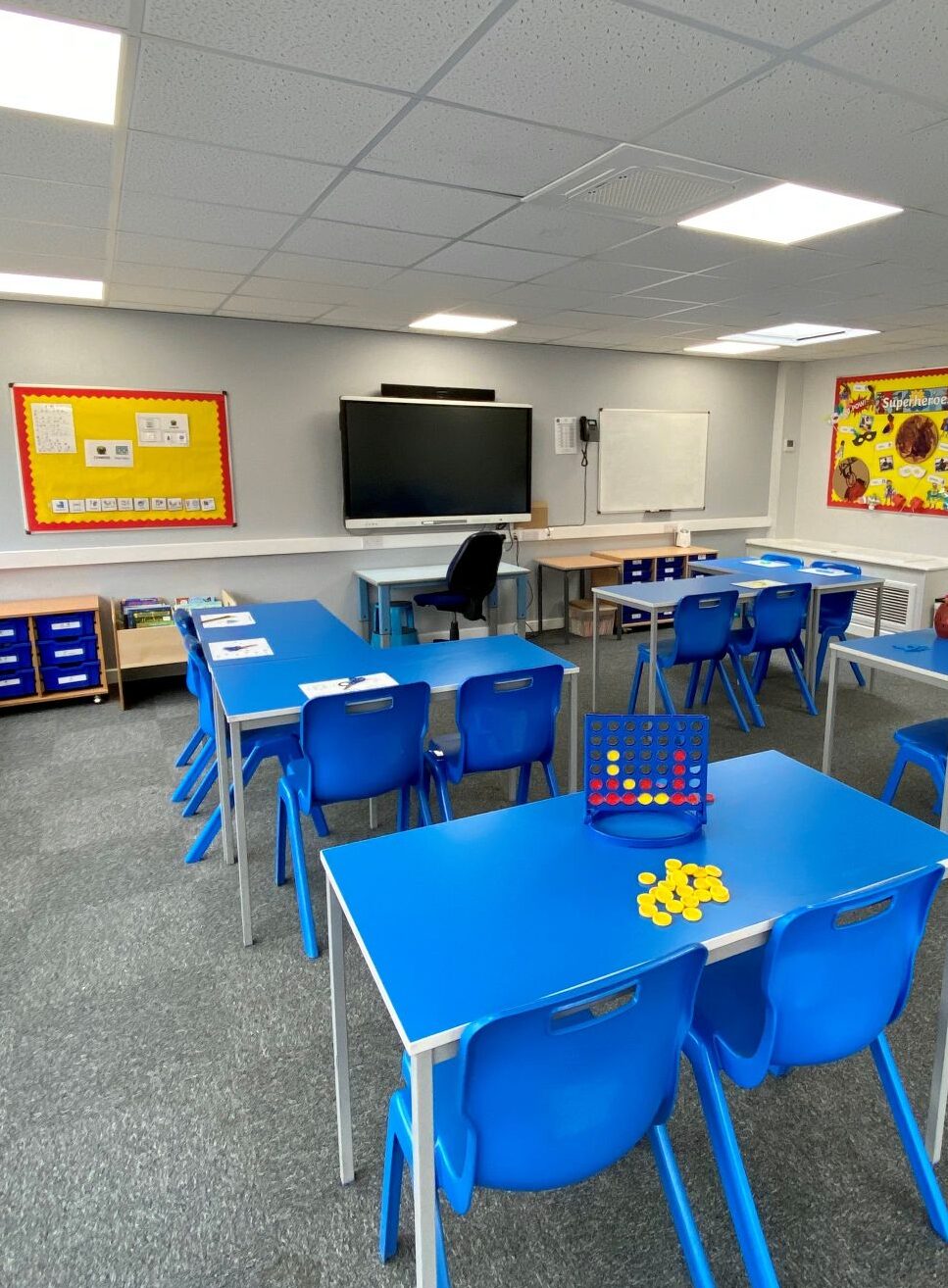KEY
GOOD HEALTH
FRIENDS, RELATIONSHIPS & COMMUNITY
Content marked ** in Italic is Sex Education Content
B0 – B7
Encountered
B8 – B14
Engaged
B15 – B21
Developing
B22+
Independent
Families and people who care for me: how to recognise if family relationships are making them feel unhappy or unsafe, and how to seek help or advice from others if needed.
Create a fair and pupil centred safe space where all pupils are free to be themselves and staff continuously develop their knowledge of each pupil.
Ensure communication aids are always relevant and available. Staff to be advocates for pupils and observe changes in behaviour closely.
Create a fair and pupil centred safe space where all pupils are free to be themselves and staff continuously develop their knowledge of each pupil.
Ensure communication aids are always relevant and available. Staff to be advocates for pupils and obvserve changes in behaviour closely.
Provide opportunities for pupils to develop communication skills to set boundaries with peers and ask for help.
During Pelican sessions, develop emotional literacy and recognition of things/people that make them feel unhappy, sad or worried.
Use RSHE dolls and stories to run through a variety of scenarios and model and show how and who to go to for help.
During Pelican sessions, develop emotional literacy and recognition of things/people that make them feel unhappy, sad or worried.
Use RSHE dolls and stories to run through a variety of scenarios and model and show how and who to go to for help.
.
Drugs, alcohol and tobacco: the facts about legal and illegal harmful substances and associated risks, including smoking, alcohol use and drug-taking.
Staff to support pupils to take medicine when needed.
Staff to support pupils to take medicine when needed.
Discuss the use of medicines and that they can come in different forms (tablets, liquid, inhalers, injections and creams)
Talk the dangers of taking medicine that are not yours, hazardous chemical, smoking/ vaping and drugs.
Discuss the use of medicines and that they can come in different forms (tablets, liquid, inhalers, injections and creams)
Talk the dangers of taking medicine that are not yours, illegal drugs, hazardous chemical, smoking/ vaping and drugs.
.
Science: identify and name the main parts of the human circulatory system, and describe the functions of the heart, blood vessels and blood • recognise the impact of diet, exercise, drugs and lifestyle on the way their bodies function • describe the ways in which nutrients and water are transported within animals, including humans.
Provide opportunities for pupils to request food, drink and physical exercise.
.
Whilst exercising get pupils to put their hand on the chest to feel their heart beating and that pumps the blood around the body.
Discuss how you body feels when it is hungry or thirsty.
.
.
Whilst exercising get pupils to put their hand on the chest to feel their heart beating and that pumps the blood around the body. Examine their arms to see veins and arteries that take blood around the body.
Explain the importance of eating healthy and drinking enough and how this is transported around the body.
Discuss how you body feels when it is hungry or thirsty.
Explain how to feel your pulse and heart beat. Can pupils find their pulse. get them to run on the spot and take their pulse again. Describe the importance of raising your heart beat whilst exercising.
Use a body outline to demonstrate how the blood is transported around the body. There are also some good videos on YouTube. Examine their arms to see veins and arteries that take blood around the body.
Explain the importance of looking after the body by eating healthy, staying hydrated and how this is transported around the body.
Use images to show the effects of smoking, drugs and excess alcohol consumption ion the body.
Discuss how you body feels when it is hungry or thirsty.
Respectful relationships: the importance of permission-seeking and giving in relationships with friends, peers and adults
Practice asking for consent during intimate and personal care.
Staff to verbally invite pupils to play, offer choices and respect when a pupil says no.
Practice asking for consent during intimate and personal care.
Staff to verbally invite pupils to play, offer choices and respect when a pupil says no (not taking option away but may offer other choices, give them time etc) – ensure they recognise that their voice matters and no means no.
Encourage asking for consent and setting boundaries consistently in the classroom. Use songs like the Boundaries Song and Pantasaurus (if developmentally appropriate) to support understanding and introduce language – my body is my body, your body is yours.
Staff to verbally invite pupils to play, offer choices and respect when a pupil says no (not taking option away but may offer other choices, give them time etc) – ensure they recognise that their voice matters and no means no.
Staff to model and practice asking for consent consistently.
Discuss the concept of peer pressure through scenarios and role play/ freeze frames/ social stories and problem solve/ explore resolves, including seeking advice.
Staff to verbally invite pupils to play, offer choices and respect when a pupil says no (not taking option away but may offer other choices, give them time etc) – ensure they recognise that their voice matters and no means no.
Staff to model and practice asking for consent consistently.
Discuss the concept of peer pressure through scenarios and role play/ freeze frames/ social stories and problem solve/ explore resolves, including seeking advice.
Online relationships: how information and data is shared and used online..
Provide access to technology and model safe use.
Set limits where possible and ensure iPad content is restricted – report when unsafe material is access. Ensure familiar adults are regularly checking and interacting with pupils whilst using technology.
Provide access to technology and model safe use.
Set limits where possible and ensure iPad content is restricted – report when unsafe material is access. Ensure familiar adults are regularly checking and interacting with pupils whilst using technology.
Use stories and role play so pupils can consider the effect of their online actions on others and know how to recognise and display respectful behaviour online and the importance of keeping personal information private.
Practice filling in forms and discuss what personal information is and what the risks of sharing can be. Provide examples of times it is safe to share your personal information and how they can check it is safe (asking for help from a trusted adult).
Use stories and role play so pupils can consider the effect of their online actions on others and know how to recognise and display respectful behaviour online and the importance of keeping personal information private.
Practice filling in forms and discuss what personal information is and what the risks of sharing can be. Provide examples of times it is safe to share your personal information and how they can check it is safe (asking for help from a trusted adult).
Being safe: where to get advice e.g. family, school and/or other sources.
Ensure staff are consistent and familiar where possible.
Allow opportunities for pupils to be helped and supported by a variety staff, have visuals of DSLs and regular interactions with wider school staff like family support team.
Allow opportunities for pupils to be helped and supported by a variety staff, have visuals of DSLs and regular interactions with wider school staff like family support team.
Direct to other services like GPs, online sources, therapists etc and give examples of what type of advice they can provide. Discuss risks of getting advice from untrustworthy source.
Allow opportunities for pupils to be helped and supported by a variety staff, have visuals of DSLs and regular interactions with wider school staff like family support team.
Direct to other services like GPs, online sources, therapists etc and give examples of what type of advice they can provide. Discuss risks of getting advice from untrustworthy source.
Health and prevention: about personal hygiene and germs including bacteria, viruses, how they are spread and treated, and the importance of handwashing.• the facts and science relating to allergies, immunisation and vaccination.
Ensure hand washing is part of a regular routine throughout the day. Support pupils to wash their hands and develop independence in this skill. Support pupils to keep their body and clothes clean.
Ensure hand washing is part of a regular routine throughout the day. Pupils should develop independence in this skill.
Talk about dirty and clean hands and clothes to avoid being ill or smell. Pick an activity such as painting and then encourage pupils to wash their hand free of paint.
Use sensory stories and dolls to model personal hygiene routine.
Pupils should be able to identify when to wash their hands. Ensure hand washing is part of a regular routine throughout the day.
Talk about dirty and clean hands and how germs can’t always be seen. Discuss that germs can make you ill. Do a demonstration of how easy germs can spread with glitter or paint and hand shaking. ask the pupils to wash their hands after to remove the pretend germs.
Talk about washing clothes regularly to avoid them smelling.
Use sensory stories and dolls to model personal hygiene.
Discuss the importance of vaccination and that some people could have allergies and food intolerances.
Use sensory stories and dolls to model the importance of personal hygiene routines (hair, hand, body and teeth).
Pupils should be able to identify when to wash their hands. Ensure hand washing is part of a regular routine throughout the day. Discuss that germs can make you ill. Do a demonstration of how easy germs can spread with glitter or paint and hand shaking. ask the pupils to wash their hands after to remove the pretend germs.
Talk about washing clothes regularly to avoid them smelling.
Discuss the importance of vaccination and that some people could have allergies and food intolerances.
Mental wellbeing: it is common for people to experience mental ill health. For many people who do, the problems can be resolved if the right support is made available, especially if accessed early enough.
Offer regulation techniques when pupils begin to feel dysregulated and overwhelmed.
Staff to support pupils to regulate and access communication aids to request items or activities.
Staff to support pupils to reflect upon events to explore the appropriate and proportionate response.
Discuss who they could come to if they need help or feeling sad. Use PELICAN, sensory stories and dolls to model this.
Talk about who can help. (Trusted adults, family, doctors)
Staff to support pupils to reflect upon events to explore the appropriate and proportionate response.
Discuss extreme emotions and that we might need help to deal with them at times such as triggers, events or continuously feeling an emotion. Use PELICAN, sensory stories and dolls to model this.
Talk about who can help. (Trusted adults, family, doctors)
Discuss mental illness and that this is common to experience (depression [search the big black dog] , anger, anxiety).
Discuss what you can do if you need help, how to get help (doctors, trusted adult, family) and how to spot signs in others.
Internet safety and harms: where and how to report concerns and get support with issues online.
Provide access to technology and model safe use.
Set limits where possible and ensure iPad content is restricted – report when unsafe material is access. Ensure familiar adults are regularly checking and interacting with pupils whilst using technology.
Provide access to technology and model safe use.
Set limits where possible and ensure iPad content is restricted – report when unsafe material is access. Ensure familiar adults are regularly checking and interacting with pupils whilst using technology.
Recognise the rules and principles for keeping safe online, how to recognise risks, harmful content and contact, and how to report them.
Recognise the rules and principles for keeping safe online, how to recognise risks, harmful content and contact, and how to report them.
Basic first aid: concepts of basic first-aid, for example dealing with common injuries, including head injuries.
Provide personal and classroom communication aids to support pupils to express if they feel unwell or if something hurts.
Use sensory stories and dolls with pupils to show what to do if you are hurt and who can help.
Discuss emergency services and what they do. Use role play to model this.
Teach what to do if they get hurt. Model to pupils basic first aid (pressure on bleeding, how to clean a wound and use a plaster, how to deal with burns).
Use sensory stories and dolls with pupils to show what to do if you are hurt and who can help.
Discuss emergency services and what they do. Use role play to model this. Practice emergency calls and asking for help.
Teach what to do if they get hurt. Model to pupils basic first aid (bleeding, burns, sprains and suspected broken bones).
Use sensory stories and dolls with pupils to show what to do if you are hurt and who can help.
Discuss emergency services and what they do. Use role play scenarios and how to respond.



